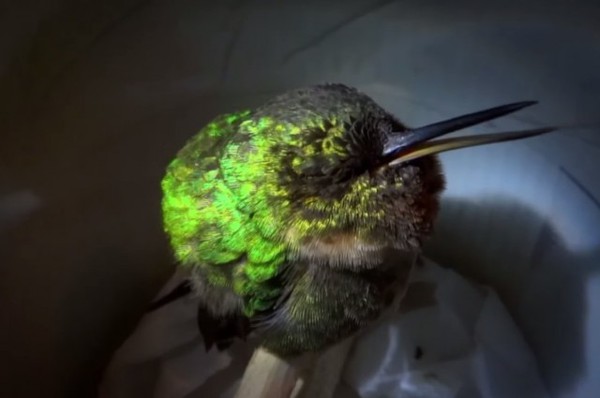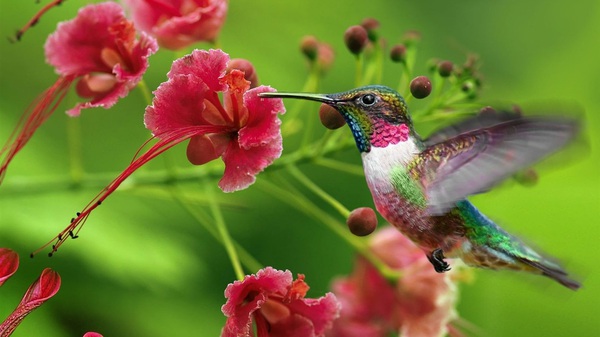Experts were extremely surprised to learn that hummingbirds are capable of “snoring” as humans.
But have you ever wondered that besides humans, are there any creatures that also snore? The BBC recently gave evidence to prove that hummingbirds also experience ‘snoring’ as humans.
Mammalian snoring occurs when the airways may be narrow or airflow blocked, according to experts, vibrations that create snoring when the subject breathes. But this is not the case with hummingbirds.
Instead, a “snoring” sound is heard when the hummingbird wakes up from a brief hibernation – the time it takes for the hummingbirds to recharge and helps them maintain their body temperature.

But have you ever wondered that besides humans, are there any creatures that also snore? The BBC recently gave evidence to prove that hummingbirds also experience ‘snoring’ as humans.
Mammalian snoring occurs when the airways may be narrow or airflow blocked, according to experts, vibrations that create snoring when the subject breathes. But this is not the case with hummingbirds.
Instead, a “snoring” sound is heard when the hummingbird wakes up from a brief hibernation – the time it takes for the hummingbirds to recharge and helps them maintain their body temperature.

After more research, experts found that when hummingbirds were “in a coma,” they used very little oxygen. Although this will save them a lot of energy, it will be difficult for them to wake up.Because at “dawn”, they need a large amount of oxygen (equivalent to the size of the body) to begin to warm up, thus raising the body temperature to wake up.

The noise they make is likely caused by a combination of consuming oxygen and warming up which increases body temperature. Some experts believe that rhythmic panting is a sign of stress, and maybe they are dying.
However, many others shared that when the hummingbird woke up it flew away looking healthy and was still energetic in search of the first bite of food of the day.


